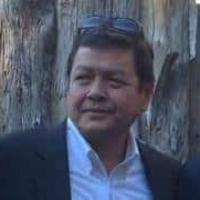Wheatland White Collar Crime Lawyer, California
Sponsored Law Firm
-
 x
x

Click For More Info:
-
The Law Offices of Richard L. Cooper, P.A.
848 Brickell Avenue Suite 800 Miami, FL 33131» view mapDWI/DUI, Drug Trafficking, Felony Nationally Ranked Top 40 Under 40
With Richard L. Cooper you can expect a trusted confidant who will work diligently to fully understand your case and determine a road map to help you regain control of your life.
800-756-2781
Richard Thomas Dudek
✓ VERIFIEDCriminal, Felony, Misdemeanor, White Collar Crime, DUI-DWI
Certified Criminal Law Specialist
Richard Dudek knows the Sacramento courts, procedures and prosecutors. Our highly skilled defense team includes licensed private investigators who use... (more)
Malcolm S. Segal
Litigation, White Collar Crime, Securities Fraud , Corporate
Status: In Good Standing
James P. Mayo
State Appellate Practice, Federal Appellate Practice, White Collar Crime, Professional Malpractice
Status: In Good Standing
Mark Harry Sollitt
Real Estate, White Collar Crime, DUI-DWI
Status: In Good Standing Licensed: 30 Years
Sage BlackOwl
Criminal, DUI-DWI, Felony, Misdemeanor, White Collar Crime
Status: In Good Standing Licensed: 10 Years
FREE CONSULTATION
CONTACTNorry Sierra Harn
Litigation, White Collar Crime, Administrative Law, Business
Status: In Good Standing Licensed: 9 Years
John Harrell Black
Workers' Compensation, White Collar Crime, Criminal
Status: Inactive Licensed: 49 Years

 Richard L. Cooper Miami, FL
Richard L. Cooper Miami, FL AboutMiami Attorney at Law
AboutMiami Attorney at Law ServicesCriminal Defense
ServicesCriminal Defense

